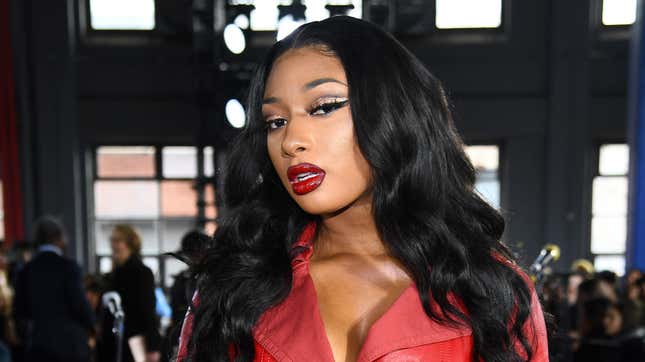

In February of this year, 20-year-old rapper Pop Smoke was shot and killed in Los Angeles. A then-rising star on the precipice of global fame, he was a crucial figure in New York’s growing drill movement whose song “Dior” was adopted as a protest anthem at Black Lives Matter marches across New York City after his death. Once again, the industry had lost a promising young artist just as they were beginning to share their talent with the world. In the past few years alone, Nipsey Hussle died at age 33, Marlo at age 30, and Jimmy Wopo at age 21—all to shootings—and artists like Mac Miller, Lil Peep, and Chynna to drug overdoses, each death a tragic loss for music and the communities in which they thrived.
It feels like the industry has been in a state of unprecedented, constant mourning, as posthumous releases become a depressing norm and online communities turn into spaces for collective grief for young fans. Which is why when it was reported that Megan Thee Stallion had been shot in the feet in mid-July, TMZ’s intrusive coverage leading the charge, it was a triggering reminder of the violence so many artists have endured in the past few years, but also of how carelessly the music industry could fumble the story of a star in danger. Given what the industry has experienced and Pop Smoke’s death just a few months ago, you would think that Megan Thee Stallion would be granted compassion. Instead, her shooting was meme’d into jokes.
Soon after the shooting, Basketball Wives star Draya Michele joked that Megan and rapper Tory Lanez (who was arrested on gun possession at the scene of the shooting but has not been confirmed as the shooter) had gotten into a sort of “Bobby [Brown] and Whitney [Houston] love.” Draya said on the Weed and Wine podcast, “I’m here for it… I want you to like me so much that you shoot me in the foot, too.” In a blog that was picked up by rap outlets, podcaster and accused rapist Adam22 blamed Megan for “having an ego,” even as Megan held off on addressing what happened. “I have a Megan Thee Stallion joke but it needs to be twerked on,” Chrissy Teigen tweeted and later apologized; and comedian Jess Hilarious posted a “reenactment” of Tory Lanez shooting Megan. 50 Cent apologized to Megan after posting a meme about the shooting, and Cam’Ron posted a transphobic joke about Megan that’s still up on his Instagram.
-

-

-

-

-

-

-

-

-

-

-

-

-

-

-

-

-

-

-

-

-

-

-

-

-

-

-

-

-

-

-

-

-

-

-

-

-

-

-

-








































